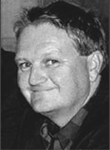Ien Ang
(University of Western Sydney, Australia)
The expanding and contracting sights and sites of Cultural Studies
Cultural studies’ vision – what it sees – has generally been rather expansive. Cultural studies claims to look far and wide into the world, exploring whole ways of life in all their situated differences and entanglements. This expansive way of seeing has also led to a proliferation of multiple areas of study: cultural studies scholars are not shy to set their sights on ever new sites of analysis. This expansiveness of the sights and sites of cultural studies is what makes the field so slippery: it remains difficult to define what cultural studies is. Paradoxically, this very expansiveness of cultural studies’ intellectual habitus can also lead to a contraction of vision, even a blindness of the potential power of its own vision. This is debilitating for the way in which cultural studies might be practised. I will argue that in these neoliberal, globalised times it is essential for cultural studies to expand its sights and sites not just intellectually, but also institutionally and pragmatically, beyond its comfort zones, to fulfil its promise as a crucial intellectual discipline for engaging with the unprecedented complexities of our time.
 Ien Ang is Distinguished Professor of Cultural Studies and the founding Director of the Institute for Culture and Society at the University of Western Sydney, Australia. Her books, including Watching Dallas, Desperately Seeking the Audience and On Not Speaking Chinese, are recognised as classics in the field of cultural studies, and her work has been translated into many languages, including Chinese, Japanese, Italian, Turkish, German, Korean, and Spanish. Her most recent book, co-edited with E. Lally and K. Anderson, is The Art of Engagement: Culture, Collaboration, Innovation (University of Western Australia Press, 2011). Her current interests include cultural diversity and cultural complexity, the cultural implications of the so-called rise of Asia, and carving out a meaningful, practical role for cultural studies in engaged, collaborative and interdisciplinary research endeavours in the context of the neoliberal university.
Ien Ang is Distinguished Professor of Cultural Studies and the founding Director of the Institute for Culture and Society at the University of Western Sydney, Australia. Her books, including Watching Dallas, Desperately Seeking the Audience and On Not Speaking Chinese, are recognised as classics in the field of cultural studies, and her work has been translated into many languages, including Chinese, Japanese, Italian, Turkish, German, Korean, and Spanish. Her most recent book, co-edited with E. Lally and K. Anderson, is The Art of Engagement: Culture, Collaboration, Innovation (University of Western Australia Press, 2011). Her current interests include cultural diversity and cultural complexity, the cultural implications of the so-called rise of Asia, and carving out a meaningful, practical role for cultural studies in engaged, collaborative and interdisciplinary research endeavours in the context of the neoliberal university.
[website]
Gisela Cánepa
(Pontificia Universidad Católica del Perú, Lima, Peru)
Nation branding: on the performativity of images in the contemporary world
This talk begins with an analysis of the documentary “Peruanos en Nebraska” (Peruvians in Nebraska) of the Peruvian nation branding campaign released in the year 2011. Its transmission through television and internet led to an intense public debate about the ‘true’ representation of Peruvian national identity. However this debate did not contribute to an understanding of the way in which the documentary operates as mechanism to the re-foundation of a new Peruvian community. Instead I propose a performative approach that is more suitable to pose questions beyond the issue of authenticity, and that allows to problematize the terms in which a new Peruvian community has been invented. This is a fundamental question to comprehend the role of Marca Perú and its marketing technics in the imagination of identities and national communities. From a more theoretical point of view the study of this particular case allows me to present some thoughts about the way in which visual images operate in the actual world. My main argument is that the definitions and uses of images respond to the transition of a representational model to a performative, and therefore demand a turn in the way we examine images. In the context of a representational order the image serves the objectification of the world and is consequently bounded to the modern institution of the archive. In the second case the image serves the constitution of an ensemble of repertories to intervene in the world in a sustained and productive way, responding to the postmodern imperative of participation. In this sense the forms of interrogating the visual image in the contemporary world require a performative focus.
 Gisela Cánepa is Full Professor of Cultural and Social Anthropology in the Department of Social Sciences at the Pontificia Universidad Católica del Peru (PUCP), and the founding Director of the Masteŕs Program in Visual Anthropology. She has largely researched and published on Andean ritual and festive events as public arenas for the formation, negotiation and contesting of ethnic, regional and national identities, as well as for the making of public statements on citizenship. In the field of visual anthropology her contributions deal with the history of visual anthropology in Peru, the ethnographical imagination, memory in the context of political violence, and surveillance. She has published Máscara, Transformación e Identidad en los Andes (1988), Identidades Representadas: Performance, experiencia y memoria en los Andes (2002); Mirando la Esfera Pública desde la Cultura (2006); and Imaginacion Visual y Cultura en el Perú (2011). She has also produced four documentaries on rituals and religious festivities in the Andes. Her current search projects on city and nation branding aim to understand neoliberalism as a cultural regime and problematize on the emergent public subject of such order. Performance, performativity and governmentality arise as main concepts discussed through case studies based on extensive fieldwork.
Gisela Cánepa is Full Professor of Cultural and Social Anthropology in the Department of Social Sciences at the Pontificia Universidad Católica del Peru (PUCP), and the founding Director of the Masteŕs Program in Visual Anthropology. She has largely researched and published on Andean ritual and festive events as public arenas for the formation, negotiation and contesting of ethnic, regional and national identities, as well as for the making of public statements on citizenship. In the field of visual anthropology her contributions deal with the history of visual anthropology in Peru, the ethnographical imagination, memory in the context of political violence, and surveillance. She has published Máscara, Transformación e Identidad en los Andes (1988), Identidades Representadas: Performance, experiencia y memoria en los Andes (2002); Mirando la Esfera Pública desde la Cultura (2006); and Imaginacion Visual y Cultura en el Perú (2011). She has also produced four documentaries on rituals and religious festivities in the Andes. Her current search projects on city and nation branding aim to understand neoliberalism as a cultural regime and problematize on the emergent public subject of such order. Performance, performativity and governmentality arise as main concepts discussed through case studies based on extensive fieldwork.
[website]
John Clarke
(Open University London, UK)
Governing the Social: a suitable focus for cultural studies?
This talk will explore what cultural studies can contribute to, and gain from, studying the field of social and public policies. Rather than unfocused claims about the end of welfare states, or even government from a social point of view, I approach this question through an interest in the ways that the social is imagined as a field of intervention. This orientation leads to a concern with the strategies, apparatuses and practices through which projects to govern the social are materialized.
The talk will examine the tensions, antagonisms and contradictions that are put into play by projects that seek to govern the social. Recognising that the social is itself a contentious and unruly field, it becomes important not to assume that strategies are either coherent or effective.
Finally, the talk will give some attention to the implications of ‘Austerity’ politics and policies for conceptions of the social and ambitions to govern it.
 John Clarke is Professor of Social Policy at the Open University in the UK, where he has been engaged in teaching and research for over thirty years. As a postgraduate at the Centre for Contemporary Cultural Studies in Birmingham he was part of the writing groups that produced Resistance Through Rituals (WPCS 7/8, 1975) and Policing the Crisis (Palgrave, 1978). Since then he contributed significantly to a cultural analysis of social policy and welfare and has worked on the impact of managerialism on public services. His current work is concerned with questions of citizenship; the politics of policy translation in transnational settings; and the implications of financial crisis for the future of public services and social welfare. He is the author of Changing Welfare, Changing States (Sage, 2004); Creating Citizen-Consumers (Sage, 2007 with J. Newman, N. Smith, E. Vidler, L. Westmarland); Publics, Politics and Power (Sage, 2009 with J. Newman).
John Clarke is Professor of Social Policy at the Open University in the UK, where he has been engaged in teaching and research for over thirty years. As a postgraduate at the Centre for Contemporary Cultural Studies in Birmingham he was part of the writing groups that produced Resistance Through Rituals (WPCS 7/8, 1975) and Policing the Crisis (Palgrave, 1978). Since then he contributed significantly to a cultural analysis of social policy and welfare and has worked on the impact of managerialism on public services. His current work is concerned with questions of citizenship; the politics of policy translation in transnational settings; and the implications of financial crisis for the future of public services and social welfare. He is the author of Changing Welfare, Changing States (Sage, 2004); Creating Citizen-Consumers (Sage, 2007 with J. Newman, N. Smith, E. Vidler, L. Westmarland); Publics, Politics and Power (Sage, 2009 with J. Newman).
[website]
Lothar Mikos
(University of Film and Television, Potsdam-Babelsberg, Germany)
Cultural analysis of film and television texts
Analysing films is becoming increasingly important in a mediatised society. As media of communication, films are embedded in the circumstances by which society communicates and interacts. Movies are part of discursive and social practices. They reflect the conditions and structures of society and of individual life. Movies have to be understood essentially as media of communication. Therefore the analysis of films should be a systematic investigation of the structures of film texts, their conditions of production and reception, and the societal contexts.
So analysis aims to observe how the structures of films function in the framework of the communications processes they are bound up in. Therefore, we are concerned with grounding film analysis in communication and cultural studies. That is what separates the film analysis presented here from other kinds of film analysis in film or literature studies. By film analysis I mean the analysis of moving images, including television.
Fundamentally, film and television texts are aimed at an audience. For that reason, they are open to knowledge, emotions, affects, practical meaning and their recipients’ social communication. It follows that four sorts of activity can be differentiated as playing a role in reception and appropriation: (1) cognitive activities, (2) emotional and affective activities, (3) habitual and ritual activities, and (4) social-communicative activities. All of them basically connect with two modi operandi, which define how we deal with film texts: understanding and experiencing film and television. So analysis is above all concerned with setting out these processes of understanding and experience. What is meant by ‘understanding film’ is the tackling of an audiovisual product to investigate how it is constituted as a meaningful text bound up in the cultural circulation of production and reception.
 Lothar Mikos is Professor of Television Studies and executive director of the Erich Pommer Institute for media law, media economy and media studies at the University of Film and Television “Konrad Wolf” in Potsdam-Babelsberg, Germany. He was Visiting Professor at Universities in Barcelona, Gothenburg, Glasgow, Klagenfurt and London, serves as chair of the Television Studies Section of ECREA and is on the editorial board of Communication Theory and Popular Communication. His main research interests are Audience Studies, Television Studies, Popular Culture and Qualitative Methodology in Media Studies. His books in German include among others a John-Fiske-Reader (Transcript, 2001 ed. with R. Winter), a Handbook on Qualitative Media Research (UVK, 2005 ed. with C. Wegener), an Introduction to Film and Television analysis (UVK, 2nd ed. 2008), and most recently Transnational Serial Culture (VS Verlag, 2012 ed. with S. Eichner & R. Winter).
Lothar Mikos is Professor of Television Studies and executive director of the Erich Pommer Institute for media law, media economy and media studies at the University of Film and Television “Konrad Wolf” in Potsdam-Babelsberg, Germany. He was Visiting Professor at Universities in Barcelona, Gothenburg, Glasgow, Klagenfurt and London, serves as chair of the Television Studies Section of ECREA and is on the editorial board of Communication Theory and Popular Communication. His main research interests are Audience Studies, Television Studies, Popular Culture and Qualitative Methodology in Media Studies. His books in German include among others a John-Fiske-Reader (Transcript, 2001 ed. with R. Winter), a Handbook on Qualitative Media Research (UVK, 2005 ed. with C. Wegener), an Introduction to Film and Television analysis (UVK, 2nd ed. 2008), and most recently Transnational Serial Culture (VS Verlag, 2012 ed. with S. Eichner & R. Winter).
[website]
Constance Penley
(University of California, Santa Barbara, USA)
Pornography: A Limit-Case for Cultural Studies?
Sexually explicit forms of media are ubiquitous, ephemeral, and sometimes illegal, making the usual forms of film and popular culture analysis including textual, historical, archival, and ethnographic study difficult if not impossible. How do we do the seemingly impossible? The first step is to locate pornography on the spectrum of all other forms of film and popular culture. Rather than start the inquiry by asking whether Pornography is art or not, deviance or not, we need to examine what lower-case pornographies actually consist of as film and popular culture. By taking the methods of film analysis and cultural studies to the study of pornography, we can not only make new discoveries about the role of sexually explicit media in our culture but also use that study to question the theoretical approaches and methods of both film theory and cultural studies.
 Constance Penley, a founding editor of Camera Obscura: Feminism, Media, and Cultural Studies, is Professor of Film and Media Studies and Co-Director of the Carsey-Wolf Center at the University of California, Santa Barbara, USA. She has written and lectured widely on popular science and popular sex from a feminist perspective. She is a winner of the Kenneth Burke Society Prize in Rhetorical Excellence and a MacArthur Digital Media and Learning Award for DigitalOcean, an interdisciplinary research project on seeding the ocean with social media for research, education, and citizen participation. Penley’s books include The Future of an Illusion: Film, Feminism, and Psychoanalysis (University of Minnesota Press, 1989); NASA/TREK: Popular Science and Sex in America (Verso, 1997—translated into Japanese and reviewed in Nature, New Scientist, and The International Journal of Space Policy); and the forthcoming Teaching Pornography. She is the editor or co-editor of several influential collections including Feminism and Film Theory (Routledge, 1988); Male Trouble (University of Minnesota Press, 1992 edited with S. Willis); Close Encounters: Film, Feminism, and Science Fiction (University of Minnesota Press, 1990 edited with E. Lyon, L. Spigel, and J. Bergstrom); Technoculture (University of Minnesota Press, 1991 edited with A. Ross); The Visible Woman: Imaging Technologies, Science and Gender (New York University Press, 1998 edited with P. Treichler and L. Cartwright); The Analysis of Film by Raymond Bellour (Indiana University Press, 1999) and The Feminist Porn Book: The Politics of Producing Pleasure (The Feminist Press, 2013 edited with T. Taormino, M. Miller-Young, C. Parrenas Shimizu). She is also co-producer of Porn 101 with Katie Morgan for HBO Documentaries. Her creative research includes two large public art projects: Primetime Art and Biospheria.
Constance Penley, a founding editor of Camera Obscura: Feminism, Media, and Cultural Studies, is Professor of Film and Media Studies and Co-Director of the Carsey-Wolf Center at the University of California, Santa Barbara, USA. She has written and lectured widely on popular science and popular sex from a feminist perspective. She is a winner of the Kenneth Burke Society Prize in Rhetorical Excellence and a MacArthur Digital Media and Learning Award for DigitalOcean, an interdisciplinary research project on seeding the ocean with social media for research, education, and citizen participation. Penley’s books include The Future of an Illusion: Film, Feminism, and Psychoanalysis (University of Minnesota Press, 1989); NASA/TREK: Popular Science and Sex in America (Verso, 1997—translated into Japanese and reviewed in Nature, New Scientist, and The International Journal of Space Policy); and the forthcoming Teaching Pornography. She is the editor or co-editor of several influential collections including Feminism and Film Theory (Routledge, 1988); Male Trouble (University of Minnesota Press, 1992 edited with S. Willis); Close Encounters: Film, Feminism, and Science Fiction (University of Minnesota Press, 1990 edited with E. Lyon, L. Spigel, and J. Bergstrom); Technoculture (University of Minnesota Press, 1991 edited with A. Ross); The Visible Woman: Imaging Technologies, Science and Gender (New York University Press, 1998 edited with P. Treichler and L. Cartwright); The Analysis of Film by Raymond Bellour (Indiana University Press, 1999) and The Feminist Porn Book: The Politics of Producing Pleasure (The Feminist Press, 2013 edited with T. Taormino, M. Miller-Young, C. Parrenas Shimizu). She is also co-producer of Porn 101 with Katie Morgan for HBO Documentaries. Her creative research includes two large public art projects: Primetime Art and Biospheria.
[website]








